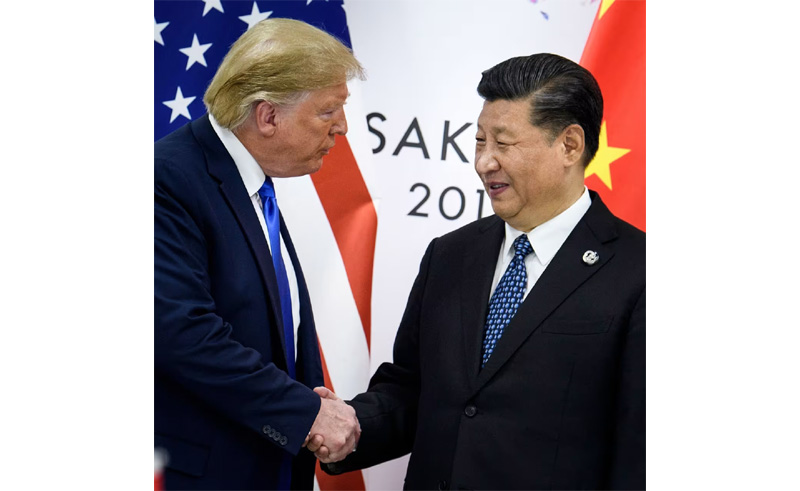TAIPEI (Taiwan), Feb 3:
The trade tensions between US President Donald Trump and Canada, Mexico, and China are escalating due to issues surrounding the production and importation of the opioid fentanyl, as well as trade surpluses and illegal migrant crossings from various countries.
Here’s China’s response so far:
What has China stated in response?
China has reiterated its intention to take “necessary countermeasures to protect its legitimate rights and interests” in light of Trump’s recent decision to impose a 10 percent tariff on China, accusing it of not doing enough to curb the production of precursor chemicals used in fentanyl.
The Foreign Ministry’s statement on Sunday did not specify any particular retaliatory actions but urged “the United States to rectify its errors, uphold the hard-won progress in narcotics cooperation, and foster a stable, sound, and sustainable development of the China-US relationship.”
China maintains that the US actions breach World Trade Organization regulations and has pledged to bring the matter before the international body overseeing global trade.
The Ministry of Public Security released a nearly identical statement, and the Commerce Ministry also issued a similarly phrased announcement.
Who does China hold responsible?
Trump blames China for permitting the production of fentanyl, which is then manufactured into tablets in Mexico and smuggled into the US, leading to approximately 70,000 overdose fatalities in the country annually.
According to China, the US should take responsibility instead of “issuing threats of arbitrary tariff increases,” as stated by the Foreign Ministry. “The United States needs to objectively and rationally address its own fentanyl crisis … (China is) among the toughest nations globally on counter-narcotics enforcement both in terms of policy and execution.”
Experts indicate that although China executes an undisclosed number of individuals each year for drug smuggling, the rate of domestic drug use remains relatively low.
The Ministry of Public Security indicated that since Beijing began implementing legal measures, the US has not reported any seizures of fentanyl precursors coming from China.
What other factors could be affecting the dispute?
China’s significant trade imbalance with the US, which hit nearly USD 1 trillion last year, has consistently been a point of contention for Trump. Tariffs may raise prices on Chinese products for American consumers, who ultimately may bear a large share of the costs associated with importing various goods, from toys to clothing.
If US consumers decide to prioritize “buying American,” it could adversely affect China’s crucial export market. Additionally, the Chinese domestic market has shown limited responsiveness to various government-backed economic stimuli, while ongoing foreign infrastructure projects and other major initiatives that exacerbate the country’s already high public debt may lead to further economic stagnation.
This situation begins to undermine Chinese President Xi Jinping’s efforts to surpass the US in vital economic and political measures, threatening his broader goal of asserting control over the island nation of Taiwan and enhancing China’s dominance in the Indo-Pacific region.
Addressing illegal immigration has also been a key political pillar for Trump, which he has incorporated into tariff actions affecting neighboring countries like Mexico and Canada. Although illegal entries from China are relatively minimal, Trump has signaled that he will hold every country responsible for its nationals who cross into the US unlawfully. (AP)


Leave a Reply